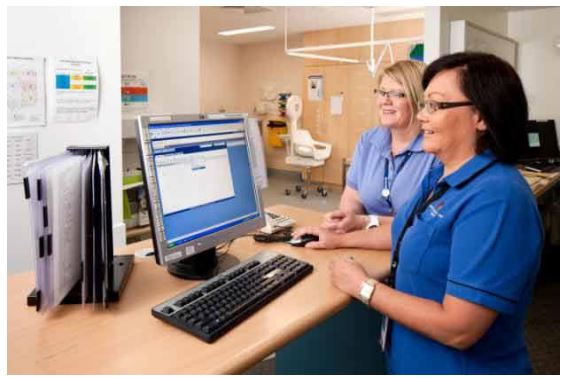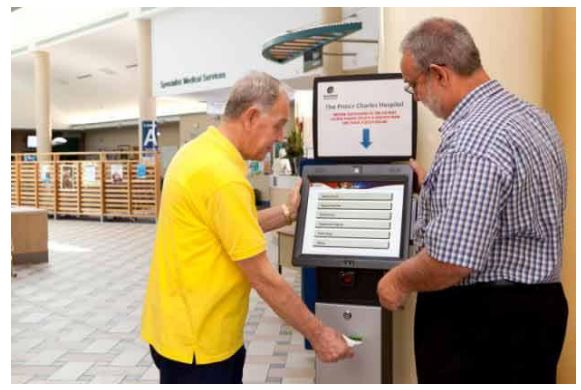Case Study - Prince Charles Hospital
Overview
The Prince Charles Hospital Specialist Outpatient Service in Queensland, Australia, is home to 43 specialist rooms, ranging from cardiac surgery to haematology, oncology, sleep disorders and vascular surgery. On average, around 500 patients per day visit one of the specialist rooms, resulting in large queues.
The Challenge
The challenge presented by these long queues was compounded by the fact that many patients, particularly those who travel long distances to visit the department, tend to arrive hours before their scheduled appointment, further adding to the existing queues.
Patient visibility was a further challenge, with staff time wasted searching for patients transiting between various departments and looking for ‘lost patients’ waiting in the wrong room.
The Solution
Using Q-Flow, patients register their arrival by scanning a barcode on their appointment letter. Each patient enters a virtual queue, which respects the scheduled appointment time. Patients who arrive early are reminded of their actual appointment time and offered suggestions on areas of the hospital they may like to visit during their wait such as the hospital cafeteria. Patients who forget their appointment letter can check in manually by entering their details into the Q-Flow system. Volunteers are also on hand to assist.
The Q-Flow system issues each patient a ticket, which uses a numbering system to protect privacy. The ticket contains the necessary information to assist each patient to locate the correct room. Large screens are installed in each waiting room to call patients by number to their appointment.
Clinicians are advised of each patient’s arrival via a web based interface. The system provides clinicians with a drop down menu to input follow-up data on each patient such as tests required or date of next visit.
Health Care Queue Management Results
Prior to the introduction of Q-Flow, patients would be queued out the door on a Monday morning waiting to register their arrival. Q-Flow has reduced the queue completely, greatly reducing stress for staff and ensuring a more pleasant experience for patients.
Clinicians and hospital staff are also using the system to provide information to colleagues on the next phase of the patient journey. For example, reception staff are using the system to advise clinicians on important information such as details on the patients’ mobility, while clinicians are using the system to provide back office staff with information on when to schedule follow up medical appointments.
The patient experience is further enhanced as the system directs each person to the correct room, which has the flow on effect of reducing the staff time lost by searching for patients waiting in the wrong area. Patient visibility is more transparent, enabling staff to track patients sent for tests or in transit from other areas.
Data captured using the Q-Flow system will be used to improve appointment scheduling in the future as it provides a clear picture on patient flow from entry to exit. Q-Flow provides information on the peaks and troughs of daily work flow, which has the benefit of enabling Nurse Unit Managers to improve staff rosters in the future and ensure high traffic areas are appropriately staffed.



